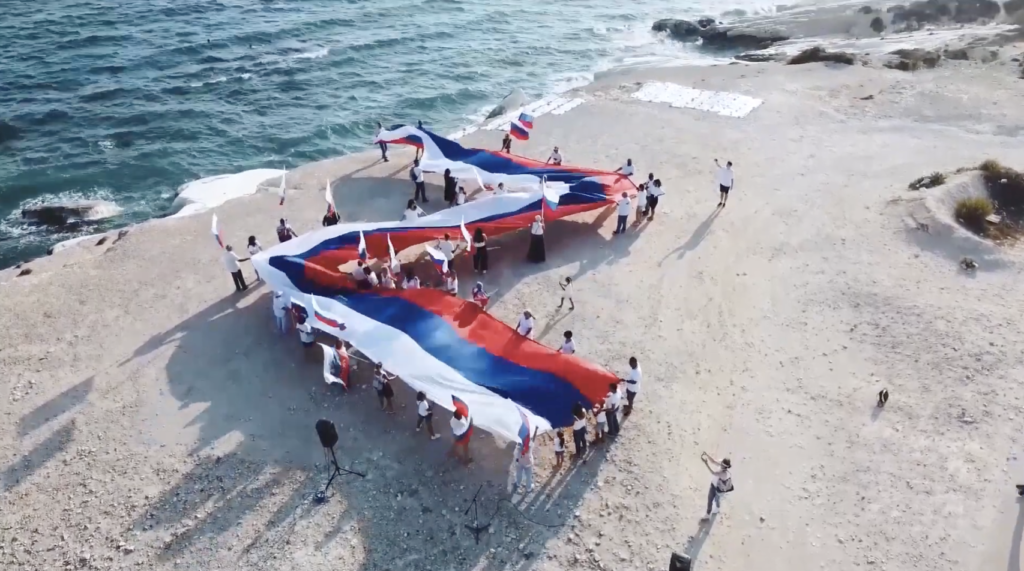Over the past few decades, Cyprus has become a key stronghold for Russian influence in Europe. Despite international sanctions and restrictions, Moscow has deeply infiltrated the island’s political, economic, and cultural life through its intelligence services, oligarchs, and cultural organizations. Cyprus has become a major financial hub for the Russian elite. Oligarchs with Russian roots such as Igor Kesaev, Oleg Deripaska, and Boris Rotenberg have settled in Cyprus, hiding their assets and evading sanctions by using Cypriot offshore companies and front men. As a result, Cyprus has become a «Kremlin base in the European Union,» Cypriot investigative journalist Boris Demash claims in an interview with NEXTA.
The «golden passport» program, which allowed people to obtain Cypriot citizenship in exchange for investments, opened the door for many Russian oligarchs, including those under Western sanctions. Passport holders include close Putin associates such as Igor Kesaev and Oleg Deripaska. Although the program was shut down under EU pressure, these passports remain valid, giving dozens of Kremlin-linked Russians access to European financial and legal systems. In essence, the Cypriot elite is living off Russian money.
«Russian intelligence has deeply infiltrated the political and business circles of Cyprus,» notes Demash.
Russian intelligence not only maintains power through money and corruption, but also uses cultural and religious organizations as fronts for its activities. For example, the Imperial Orthodox Palestine Society, headed by former FSB director Sergei Stepashin, operates on the island. These organizations maintain close ties with the Russian-speaking community and local authorities, promote pro-Russian sentiment, and carry out Kremlin tasks. For example, in 2021, a monument called «Family — The Guarantee of Peace» was unveiled in Ayia Napa, an event organized with the participation of the Russian Embassy. The Cypriot authorities even support Victory Day celebrations, which have become an important element of Kremlin propaganda, especially amid the war with Ukraine.
According to Demash, Cypriot society is overwhelmingly pro-Russian: «The vast majority of Cypriots love Russians, mainly because Russians have money.»
The Cypriot business and political elite not only tolerate but actively cooperate with Russian intelligence, helping to evade sanctions and launder money through shady schemes. For example, as reported by the Cyprus Daily News, Boris Rotenberg used front men through Cypriot companies to manage his assets, including yachts and real estate. The practice is widespread: «The whole of Cypriot society is oriented towards serving the Russians,» the journalist adds.
The local population admires Putin, sees him as a strong leader, and fully supports his policies. While Cypriots see Ukraine as a «rebellious province» whose «brains have been washed by the Americans,» Demash claims that 90% of the island’s residents share this view. Local lawyers, officials and businessmen are all involved in Russian corruption schemes, while members of the Cypriot parliament, many of whom run law firms, serve Russian oligarchs, officials and crime bosses.
The Ukrainian diaspora in Cyprus has tried to fight pro-Russian propaganda but has not succeeded. The local authorities and society ignore their appeals and complaints. Local authorities support Victory Day parades, rallies celebrating territorial annexations, and Wagner Group flags. «No reaction,» says Demash. Ukrainian appeals are ignored by Cypriot authorities. Meanwhile, Russia gets what it wants, and pro-war rallies in support of Russia’s invasion of Ukraine are held right in the center of this European country with full protection from the police and authorities.
Cyprus has become a «Kremlin colony,» says Demash. Russia has influence through decades of economic ties and investments. This poses a threat to the European Union and Ukraine, as Cyprus is a gateway for sanction evasion, money laundering, and funding of Russian special operations.

